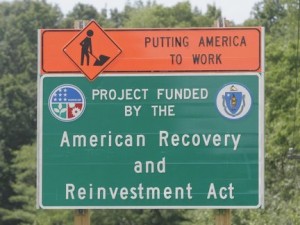 Saving State U is the just-released book by Nancy Folbre, author and UMass Amherst economics professor. On Wednesday, April 14, 2010 a book party and benefit will be held at Gordon Hall. There will be a presentation and discussion from 4:00-5:00 p.m. and a reception follows from 5:00 – 6:00 p.m. The event benefits the Public Education Network of Massachusetts (PHENOM) and is sponsored by PERI and the Department of Economics.
Saving State U is the just-released book by Nancy Folbre, author and UMass Amherst economics professor. On Wednesday, April 14, 2010 a book party and benefit will be held at Gordon Hall. There will be a presentation and discussion from 4:00-5:00 p.m. and a reception follows from 5:00 – 6:00 p.m. The event benefits the Public Education Network of Massachusetts (PHENOM) and is sponsored by PERI and the Department of Economics.
About PHENOM: The Public Higher Education Network of Massachusetts is the leading organization advocating for affordable, well-funded public higher education in Massachusetts. PHENOM unites students, faculty, alumni, staff, parents and community organizations to do grassroots organizing, policy analysis, and legislative advocacy.
PHENOM’s For a Great State of Mind: Invest in Public Educationcampaign seeks to dramatically increase state investment in public higher education. The goal is to reduce the cost of attending public college to the national average, and increase state support for public colleges and universities up to the national average. Currently, Massachusetts ranks 46th among the 50 states in its investment in public higher education. To learn more, click here.

 The research of professor Robert Pollin, economics and co-director of the
The research of professor Robert Pollin, economics and co-director of the 





